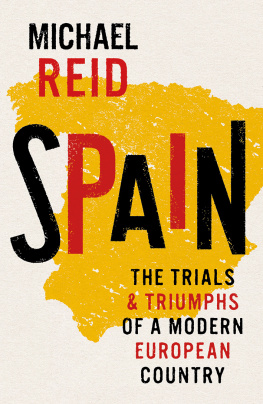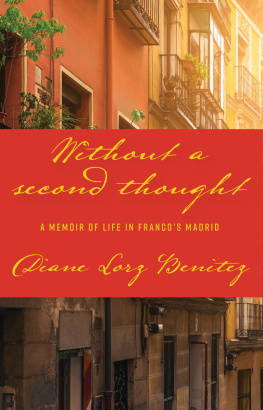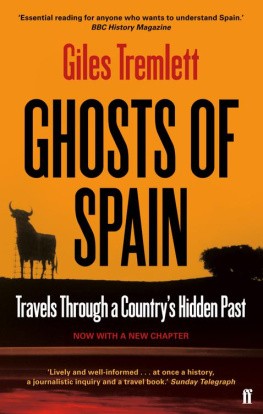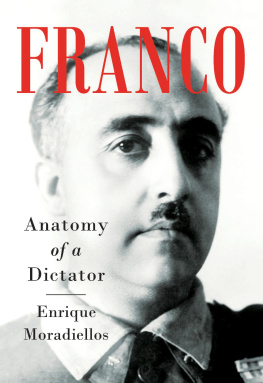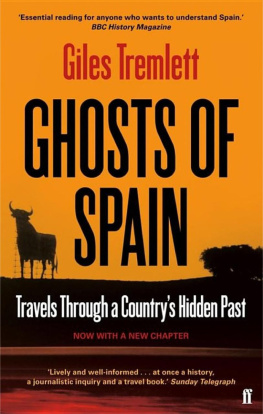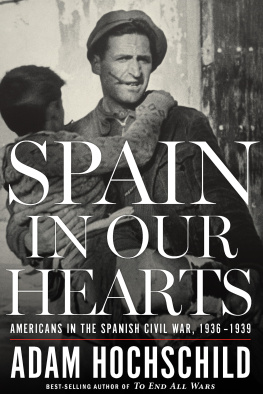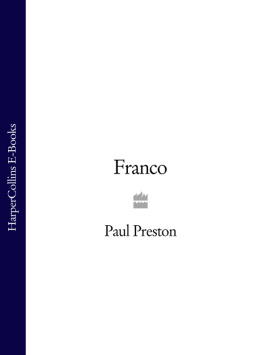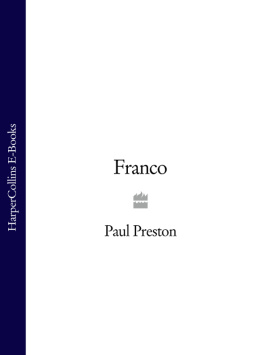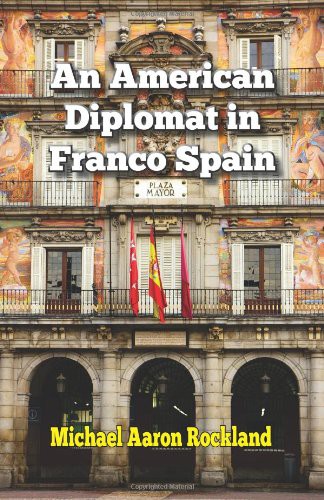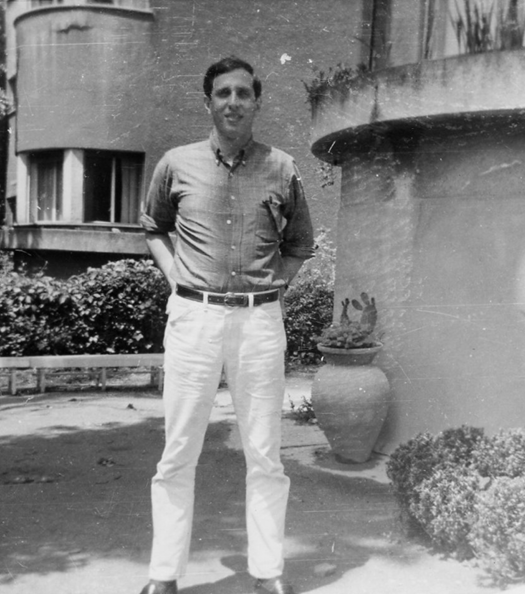Praise for Michael Aaron Rocklands
An American diplomat in Franco Spain
Michael Rocklands accounts of his unusual experiences while he and I served with the American Embassy in Spain are amusing and illuminatingthe most interesting is his tale of the hydrogen bombs that the U.S. inadvertently dropped on Spain and in the waters off its coast. This book will appeal to American as well as to Spanish audiences.
Ambassador Alexander F. Watson
Former Assistant Secretary of State
What pleasure it gives me to encounter an American, a former diplomat, who understands so well our country, past and present, and who is equally at home in the world and language of Cervantes as that of Shakespeare.
Jorge Dezcallar
Ambassador of Spain to the United States
Brilliantly funny and magnificently unputdownable for Spaniards and Americans who lived through the last death rattles of Francos regime. This book is a unique performance and an admirable tribute of love from an American to our country as well as a book that, in comparing and contrasting both countries, uniquely illuminates both Spanish and American culture.
Carmen Manuel
Professor of American Literature, and Director of the Javier Coy Press, University of Valencia
Full of stories, both amusing and of historical significance, Rockland has written a book of cultural contrasts that illuminate Spain and the United States in the 1960s as well as today.
Pilar Pion
Executive Director, The International Institute of Spain
There are lives that sound like espionage novels, others that suggest Woody Allen comedies. Michael Aaron Rocklands stories from the time he was a cultural attach in Madrid do both at the same time. He follows in the footsteps of Washington Irving, Henry Wadsworth Longfellow, and Ernest Hemingway as the latest distinguished American to immerse himself in Spanish culture.
Maria Rosell
Levante, January 27, 2012
I have just read your book on Spain, and I enjoyed it so much that I found myself doing something Ive never done before: writing to an author simply to thank him. Best book Ive read in a long time.
Carlos Sanz
Spanish historian , August 31, 2011
Michael Rocklands stories, including the one about the day he spent alone with Martin Luther King in Madrid and another about his involvement in the terrible Palomares incident, when, from an American plane, four hydrogen bombs, luckily unarmed, descended on Spain, are priceless. This is a book every Spaniard and every American should read.
Fernando Navarro
El Pais, June 3, 2011
Works by Michael Aaron Rockland
Non-Fiction
Sarmientos Travels in the United State in 1847
America in the Fifties and Sixties: Julian Marias on the United States (editor)
The American Jewish Experience in Literature
Homes on Wheels
Looking for America on the New Jersey Turnpike (co-authored with Angus Gillespie)
Snowshoeing Through Sewers
Whats American About America?
Popular Culture: Or Why Study Trash?
The Jews of New Jersey: A Pictorial History (co-authored with Patricia Ard)
The George Washington Bridge: Poetry in Steel
Fiction
A Bliss Case
Stones
Screenplay
Three Days on Big City Waters (co-authored with Charles Woolfolk)
An American Diplomat in Franco Spain
Michael Aaron Rockland

Hansen Publishing Group
An American Diplomat in Franco Spain by Michael Aaron Rockland
Copyright 2012 by Hansen Publishing Group. All rights reserved.
ISBN: 978-1-60182-305-2 (Epub edition)
Book design and typography by Jon Hansen
All rights reserved. Except for brief passages quoted in newspaper, magazine, radio or television reviews, no part of this book may be reproduced in any form or by any means, electronic or mechanical, including photocopying or recording, or by an information storage and retrieval system, without permission in writing from the publisher.
Photographs reproduced by permission of the Embassy of the United States of America, Madrid.
Hansen Publishing Group, LLC
302 Ryders Lane
East Brunswick, NJ 08816
http://hansenpublishing.com
Dedicated to my many Spanish friends, who have always made me feel at home in their country. And to my wife, Patricia Ard, and my childrenDavid, Jeffrey, Keren, Kate, and Joshuaall of whom share my affection for Spain.

With sincere thanks as well to Carmen Manuel and Jon Hansen who believed in this book and made it happen on two continents.
Table of Contents
The author in front of his house in Madrid (1966).
Introduction
I first came to know Spain in the mid-1960s when I served as Assistant Cultural Attach at the American Embassy in Madrid. Friends on both sides of the Atlantic have wondered how someone with my politics and interests could have wanted to serve in the United States government. The answer is simple: when John Kennedy, in his inaugural address, said, Ask not what your country can do for you, ask what you can do for your country, I took him quite literally; I wanted to be part of Kennedys New Frontier and joined the diplomatic service in 1961, my first post, Argentina. Part of my enthusiasm, no doubt, came from having grown up at a time of great confidence in, and enthusiasm for, the federal government as an agent of meaningful change. My parents believed, and imbued me with these same ideas, that Franklin Roosevelt and the federal government had saved the economy of the United States through the New Deal, had vanquished the Nazis and the Italian and Japanese fascists, and was the great force struggling to put an end to segregation in our country and poverty and disease worldwide.
The fact that I would be entering the United States Information Agency in particular added to my pleasure, for I would be doing cultural work overseas, and what better preparation for representing American society and culture overseas than an M.A. and an A.B.D. (all but dissertation) Ph.D. in American Studies?
Also important was that Edward R. Murrow, Americas greatest broadcast journalist (the focus of a movie in recent years, Good Night and Good Luck ), would be, however distant from my humble station, my boss. A hero who as much as anyone had vanquished the McCarthyism of the 1950s, Murrow, like so many of us attracted to government by Kennedy, had left his normal pursuitsCBS Televisionand was now Director of USIA. He would be my boss and Kennedy would be his. Could any young man in his twenties have imagined a more promising situation in which to begin his professional life?
A book also had some influence on my decision to enter the diplomatic service. It was William J. Lederer and Eugene Burdicks 1958 popular, though undistinguished, novel, The Ugly American . Taking place somewhere in Asiathough clearly Vietnam was intendedthe novel, while suffused with idealism, exposed how poorly prepared American diplomats were for overseas work. They knew neither the language nor were they familiar with the culture where they were posted. I regarded the novel as a personal challenge to prove to foreign peoples that Americans were by no means stupid and unsophisticated, that some of us, at least, were not ugly Americansthough, ironically, the character in the novel known by that name is actually the hero. Years later I would read Graham Greenes brilliant 1954 novel, The Quiet American , concerning, in part, Americas earliest blunders in Vietnam, and realized that it might have better prepared me for the realities and challenges of the diplomatic service than Lederer and Burdicks book.


